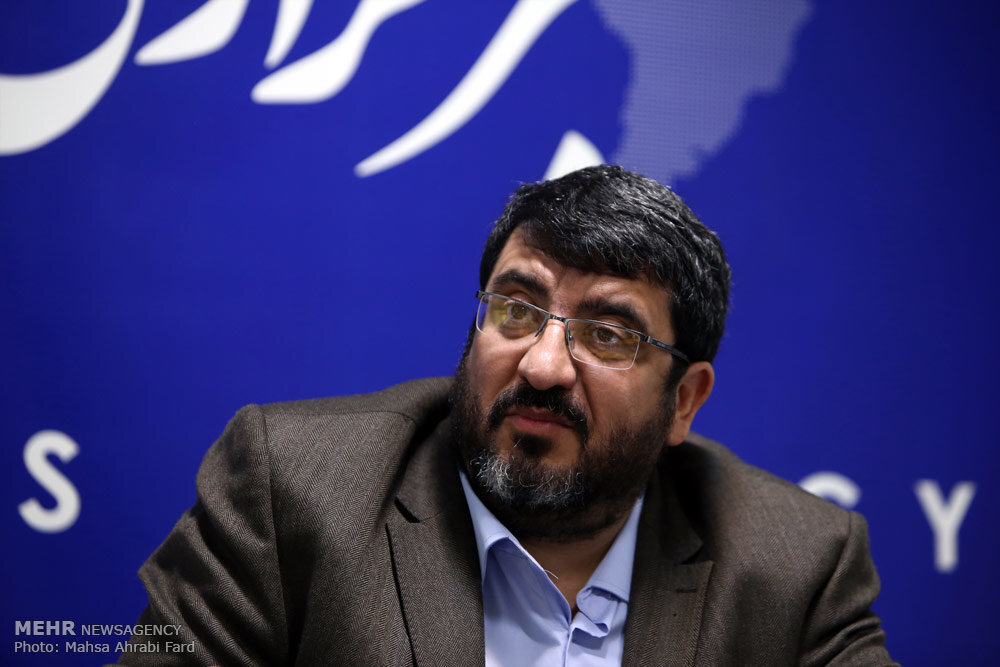
Prof: Iran does not consider Saudi Arabia as enemy

Dr. Foad Izadi is an associate professor of American Studies for a doctorate program at the University of Tehran, Faculty of World Studies. Having studied in the U.S., he has a PhD in Mass Communication from Louisiana State University. After his studies in U.S. he returned to Iran in 2009 and started a teaching profession. During an exclusive interview with the Tehran Times in Qom he talked about regional geopolitical situation and Iran’s ties with neighboring countries.
The following is the excerpt of the interview:
Q: How do you see Iran’s ties with countries of the Persian Gulf? Do you see thawing of relations with Saudi Arabia?
A: Iran does not consider Saudi Arabia to be an enemy. For Iran the U.S. and Israel are enemies. Saudi Arabia is a neighbor and Iran has been trying to improve relations with Saudis, especially since President Rouhani came to power. Rouhani has also tried to reduce tensions with the U.S. government.
“JCPOA is almost dead. The only country that is following JCPOA is Iran. Sooner or later Iran will have to abandon the nuclear deal. Even the Rouhani government is getting tired.”The problem is that the Saudis are not interested, especially after (Saudi Crown Prince) MBS came to power and started a confrontational policy. The Saudi policy against Yemen and Qatar has also failed with the MBS leadership. In order to mend ties, Iran’s foreign minister has several times proposed to visit Saudi Arabia.
Iran has no intention for a confrontation with Saudi Arabia. The U.S. tried to follow a divide and rule policy, creating tensions between neighboring countries, using its propaganda tools. The idea here is to replace Iran as the main power in the region with Israel.
They have been successful to certain extent. For example when Iran helped the Syrian government to fight ISIS there was a huge propaganda campaign to try to portray Iran as an occupation force.
Saudis play with the price of oil to put pressure on Iran by over-exporting and the end result would be for Iran to suffer.
Q: What about Iranian crude exports?
A: Iran is presently exporting crude to some Chinese companies unofficially. Officially the export is zero.
Q: The UN has described the war in Yemen as the biggest humanitarian crisis since WWII. With the UAE giving signals for withdrawing from the conflict do you see a compromise in the near future?
A: It is not a decision for Iran. It is a decision the two sides have to make. Iran has four-step proposal:
1. Seize hostilities; 2. Humanitarian aid; 3. Establishing Yemeni-Yemeni dialogue without external interference; and 4. Reaching a political solution in regards to the Yemen war.
The basic idea is to make sure that the war ends. The problem with the Saudis is that they know they have lost the war but they don’t know how to save face.
Q: What was the effect of the Houthi Aramco missile attacks on the Yemen conflict?
A: Since last year the Yemenis are using more sophisticated weapons. The Yemeni side has asked for a long time to stop the war but the UN was unable to stop hostilities because of American UNSC veto power. So Yemenis started to use force, which is the only language that the Saudis understand.
The sooner the Saudis start understanding that the sooner the war will end.
Q: What is the role of Majlis in foreign affairs and do you think there is any chance for the survival of the Iran nuclear deal (JCPOA)?
A: JCPOA is almost dead. The only country that is following JCPOA is Iran. Sooner or later Iran will have to abandon the nuclear deal. Even the Rouhani government is getting tired.
Majlis has passed a law after the murder of Soleimani. Now they want to confront the U.S. After the U.S. pulled out from the JCPOA and the murder of Gen. Soleimani, even the most optimistic MPs are anti-American.
Q: What about independent candidates. How many in the present Majlis and what do you predict for independent candidates for the next Majlis?
A: Generally during every Majlis election 1/3rd of the votes are for independent candidates, 1/3 reformist and 1/3 principlist. I don’t think this year will be any different.
Q: What do you think will be the turnout for the 11th Majlis election and which faction will fare well in the upcoming parliamentary election?
A: Turn out generally for Majlis is about 55-65 percent. I expect that these elections will follow that norm. The fact is that the Rouhani government’s policies have not paid off, including the nuclear agreement. Domestically, they are facing difficulties due to sanctions and mismanagement and currency fluctuations. So support for reformist camp won’t be as before which will give a chance to the principlists.
Q: What do you predict for the future now that E3 (European Union trio of Britain, France and Germany) has triggered the dispute mechanism?
A: According to article 36 of the nuclear agreement starting dispute mechanism doesn’t mean that they will finish it. They can take several steps. The last step would be to re-impose previous UNSC sanctions in which case Iran will exit NPT as well.
No one can veto this mechanism.
Source: TehranTimes















